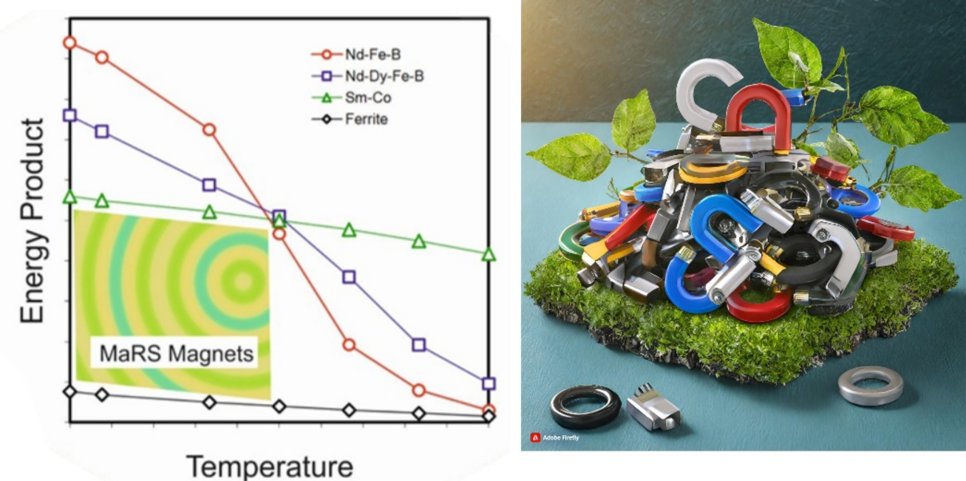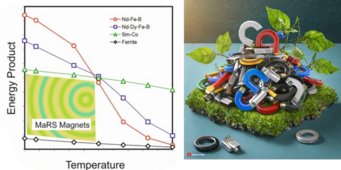
Green Magnets by Recycling and Substitution (MaRS)
MPG-FhG Cooperation project between MPI for Sustainable Materials and Fraunhofer IWKS
Permanent magnets (PMs) are vital in societies everyday life, as they are widely used in common applications. Typically, two types of magnets are used on an industrial scale: inexpensive but low-performance ferrite magnets, and expensive but high-performance rare-earth-based magnets. Since rare-earth elements (REE) are designated as highly critical in terms of supply and mining, there is an ongoing search for substitute materials. The overall goal of the MaRS project is to fill the current materials gap between high and low performing PMs with less critical elements to produce more sustainable green magnets. Two parallel mitigation strategies are being pursued for this purpose, to increase the resilience and sustainability of PMs:
⦁ Sustainable synthesis of alternative REE-free PMs without critical elements based on the Fe-P, Fe-N, and L10-systems (Mn-Al, Fe-Ni), by substitution of currently used REE-based magnets.
⦁ Recycling of high-performance PMs to make efficient use of the critical materials already circulating in Europe’s technosphere.
Different sustainable synthesis techniques are being investigated for the stabilization of phases and production of polycrystalline bulk PMs. These include rapid quenching techniques, nanopowder synthesis, controlled nitridation, and pyrometallurgical processes. For the recycling pathway, sustainable metallurgical processes will be tested to process contaminated magnets by plasma-assisted smelting and cleaning steps. All experiments are accompanied by in depth material characterization on several length scales and technologies. Hence, competencies of the Max Planck Institute for Sustainable Materials (MPI SusMat) and the Fraunhofer Research Institution for Materials Recycling and Resource Strategies (IWKS) are synergistically combined to achieve the ambitious goal of the project in developing a new class of green permanent magnets with properties in the gap between ferrites and REE-based PMs, which can be produced in the bulk form with technology that is transferable to industrial scale.

